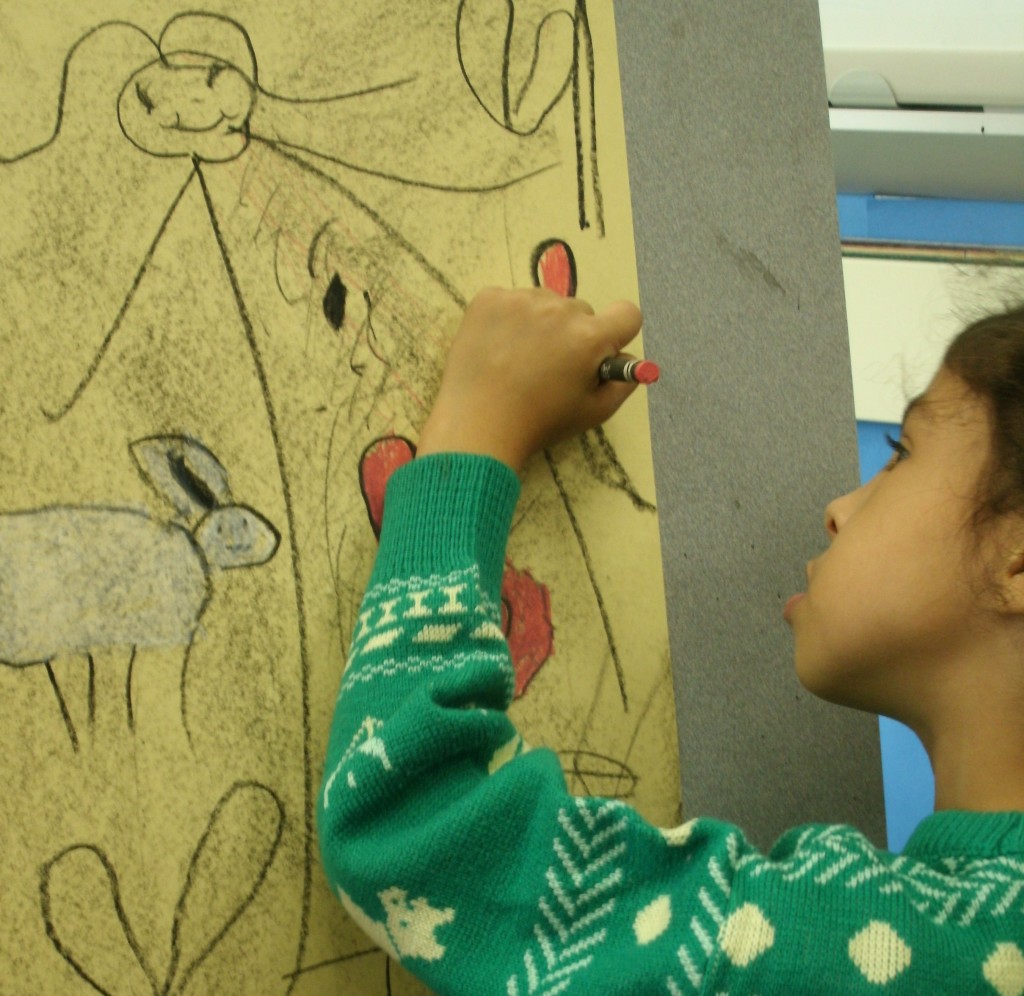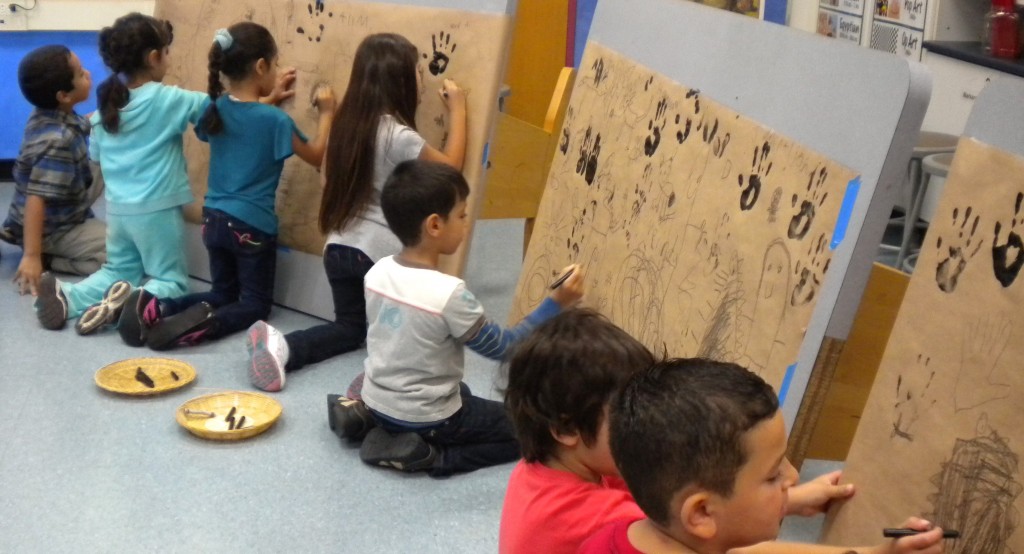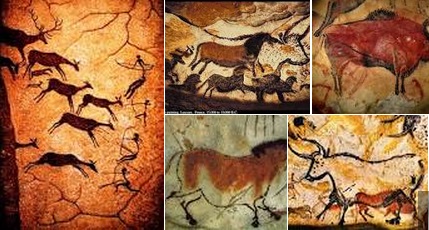Art assignments are more than mere projects, they are holistic learning opportunities in which art creation is just one aspect of the overall learning experience. These experiences can include one-on-one discussion, class discussion, reading, writing, art creation, experimentation, movement, singing, and reflection. The product of these experiences—the “art”—demonstrates a student’s understanding of concepts, vocabulary, and craftsmanship. Below are a few examples of past projects.
Butterfly Pointillism
Students welcomed Spring by creating beautiful drawings of butterflies, tracing a template and decorating them with little dots.
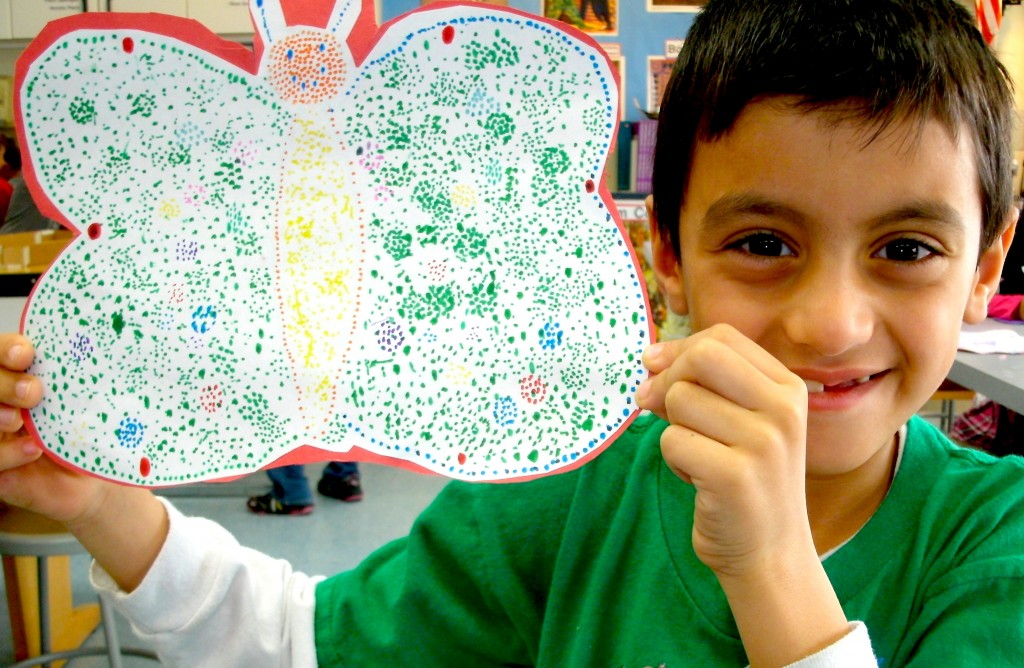
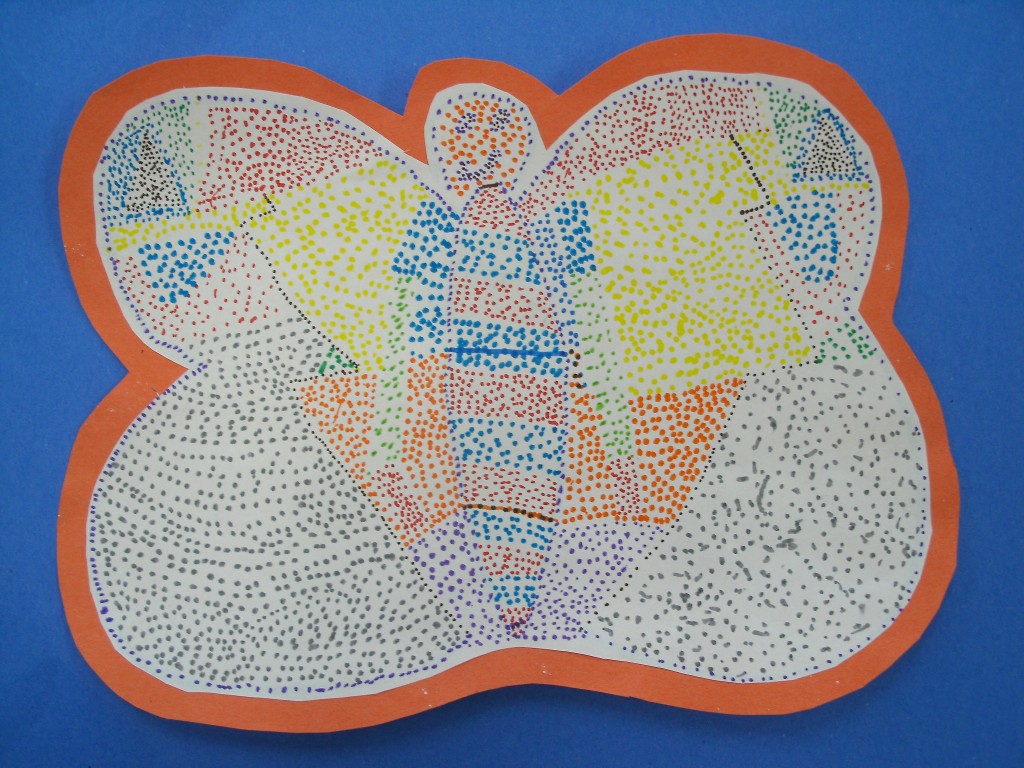
Paper Weaving
A challenging acquirement for kindergarten, weaving is a wonderful exercise in dexterity and pattern. After weaving two-inch strips of paper, each student enhanced his or her picture by cutting and gluing painted shapes onto its woven surface.
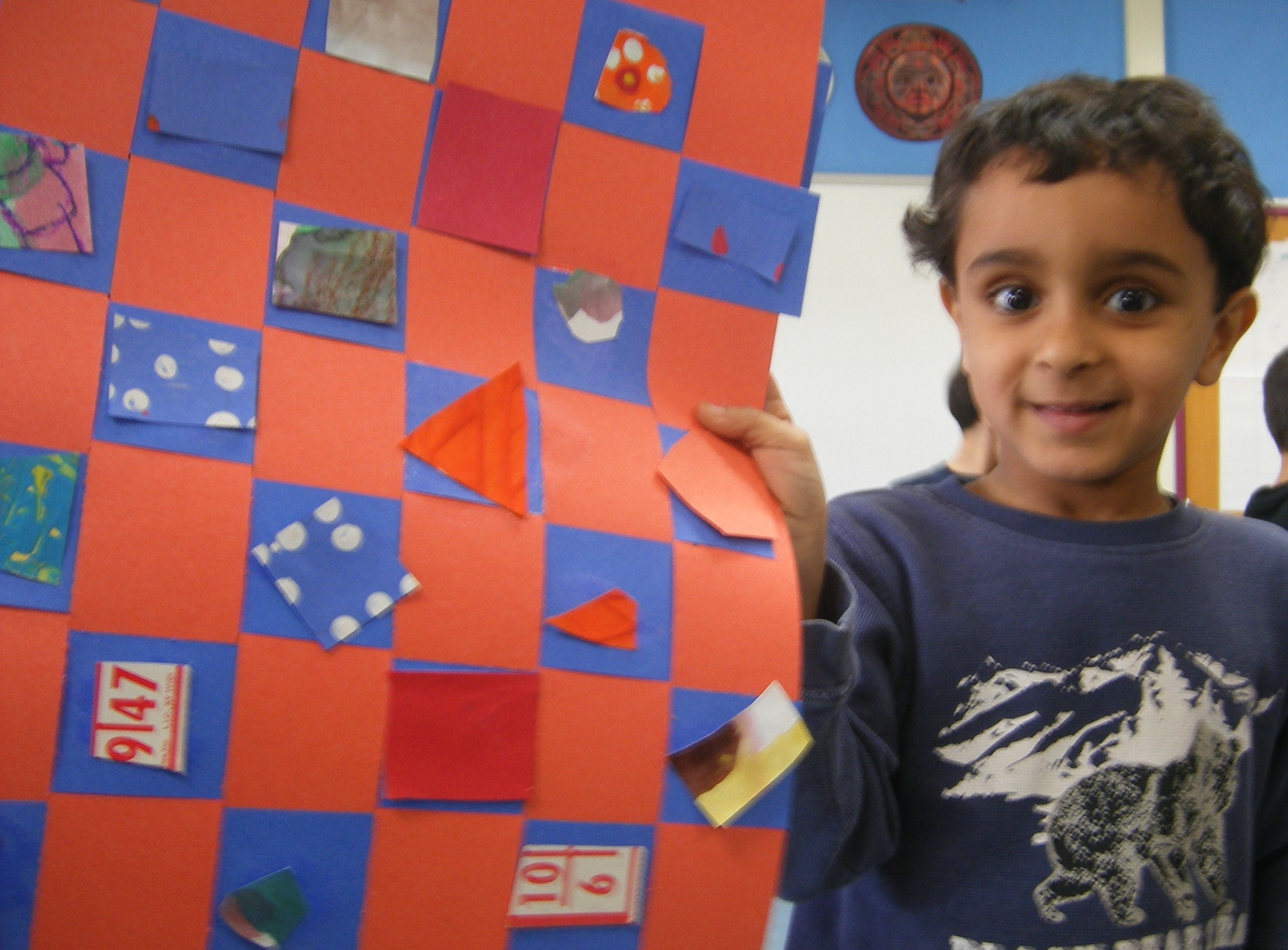
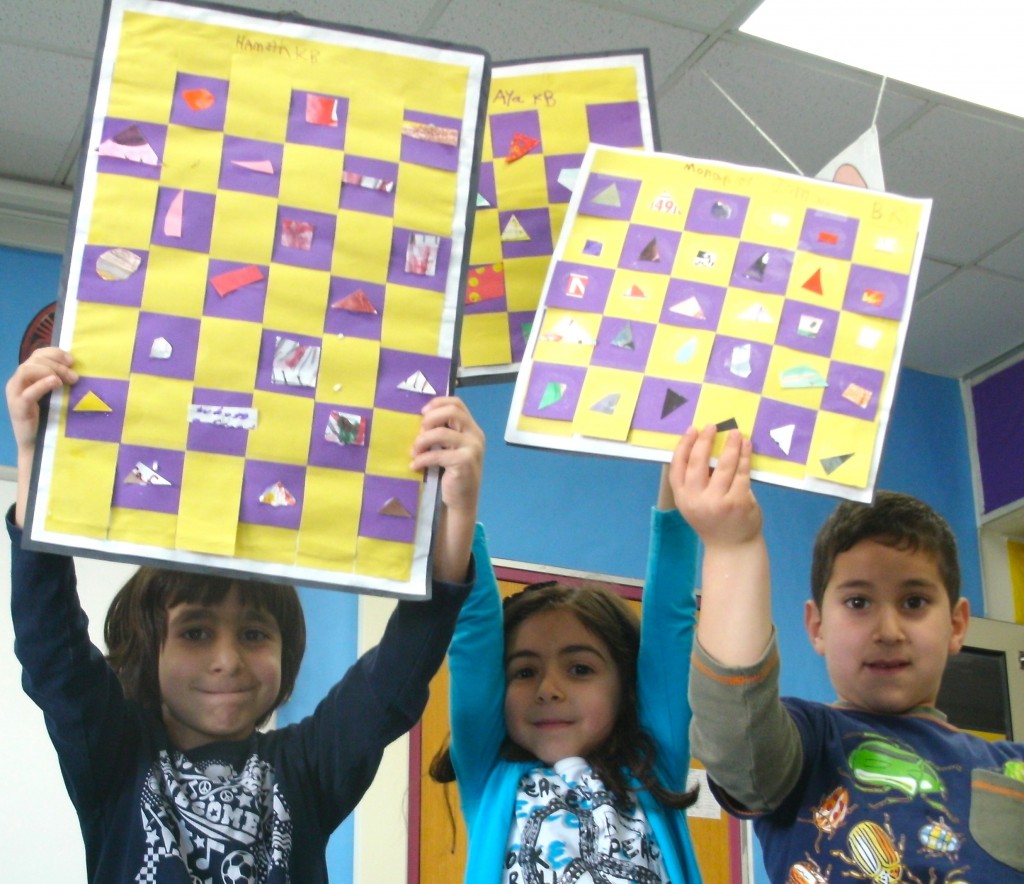
Coiled Pattern Snakes
Students learn how to trace a template, are introduced to patterns of colors, shapes, and lines, and learn how a flat shape can be converted into a hanging form. Watch out for snazzy snakes dangling above you!
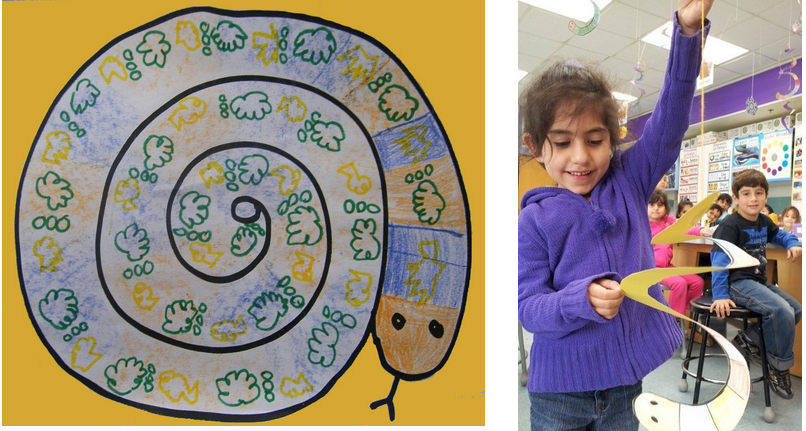
Scary Shoe Monsters
Students learn about texture by creating a crayon rubbing of the bottom of their shoe, and then add to that image to create a scary picture of a monster!
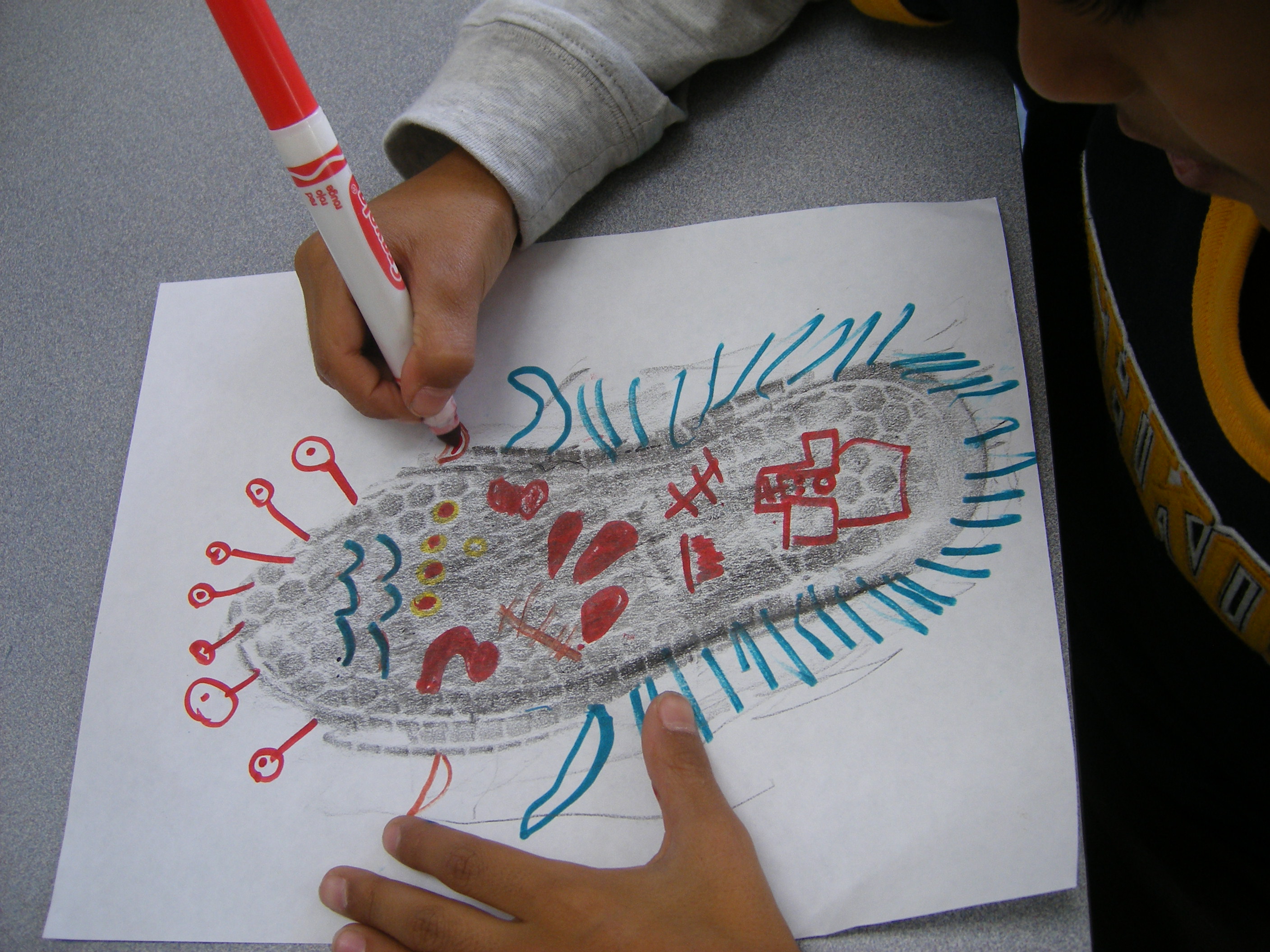
Imaginary Playgrounds
Art carries a deeper meaning when one has a real world connection to its content. Creating Imaginary Playgrounds introduces Kindergarten students to the fine motor skills of folding, cutting, and gluing paper in a context familiar with their experiences.

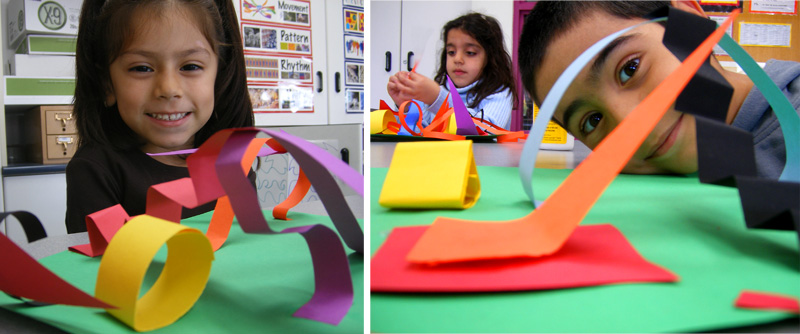

Line Exploration
Learning how to create and replicate different types of lines is an important step as an artist. Students explored the room, looking for different types of lines, painted the lines they saw, then outlined each line and colored in the background.
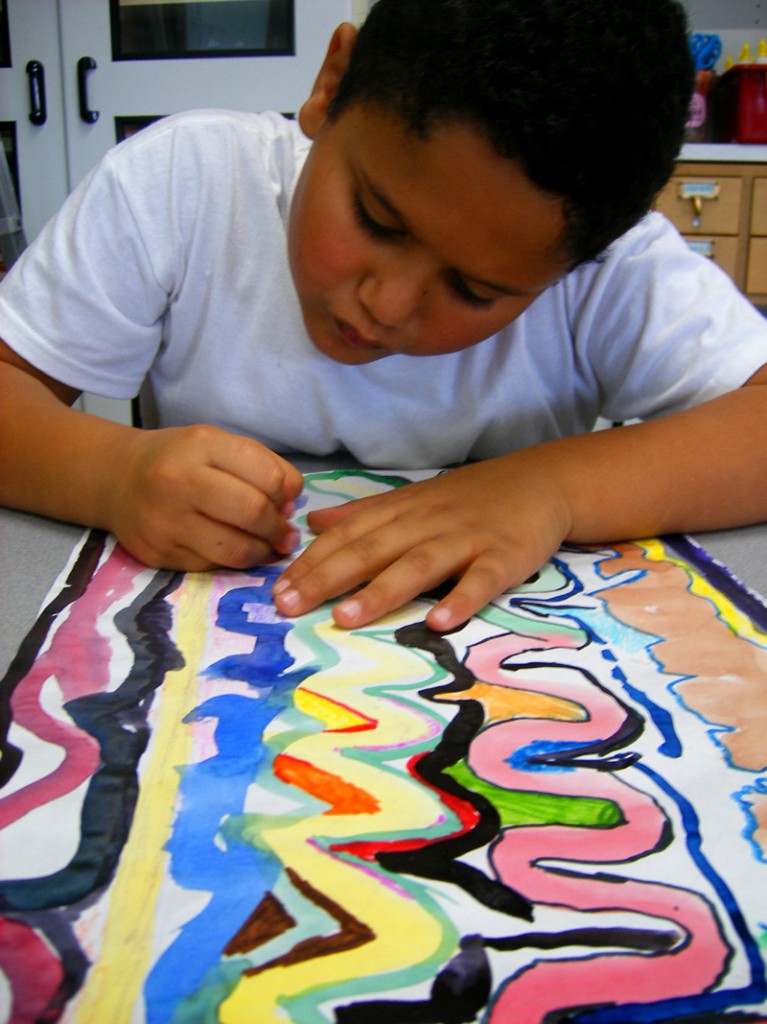
Cool Winter Cats
Students learned about basic shapes, cut them out, glued those shapes into the shape of a cat, and then decorated their cats with cool colors. MEOW!
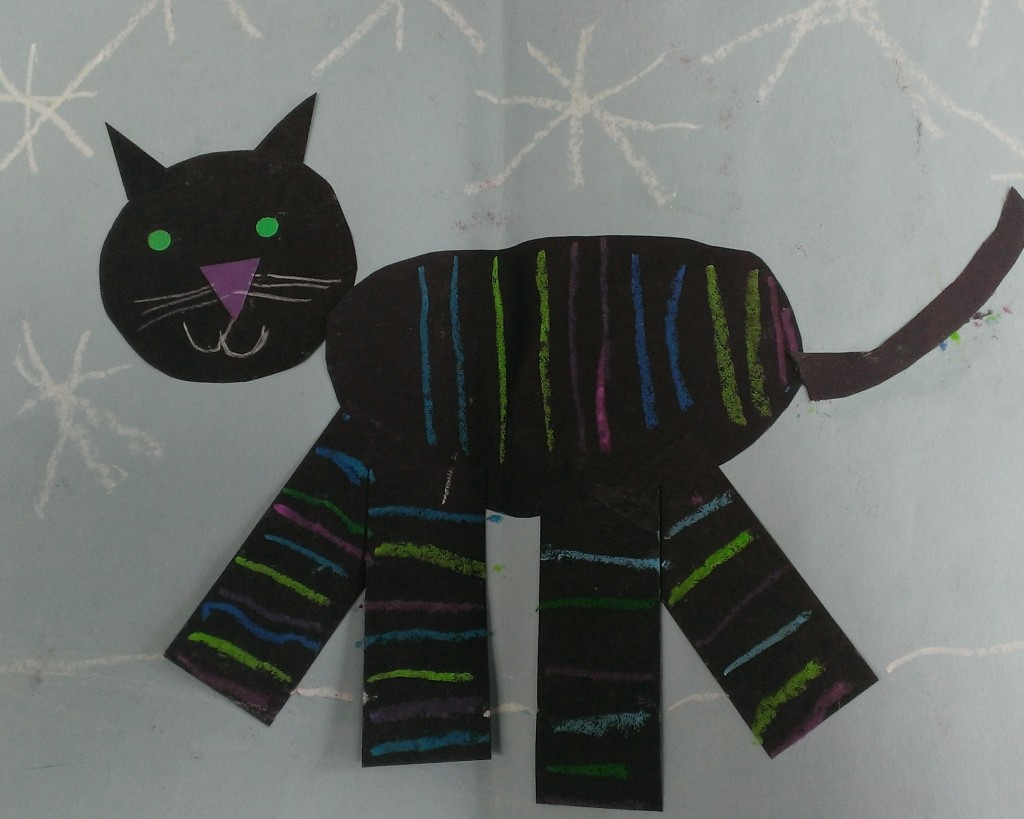
African Samburu Necklaces
Students created their own version of the colorful beaded necklaces worn by the Samburu people of Kenya. Using markers, paint, and focusing on patterns, each student created a colorful design along the outer edge of a paper plate. Once complete, the plates were cut to size and worn for fun.
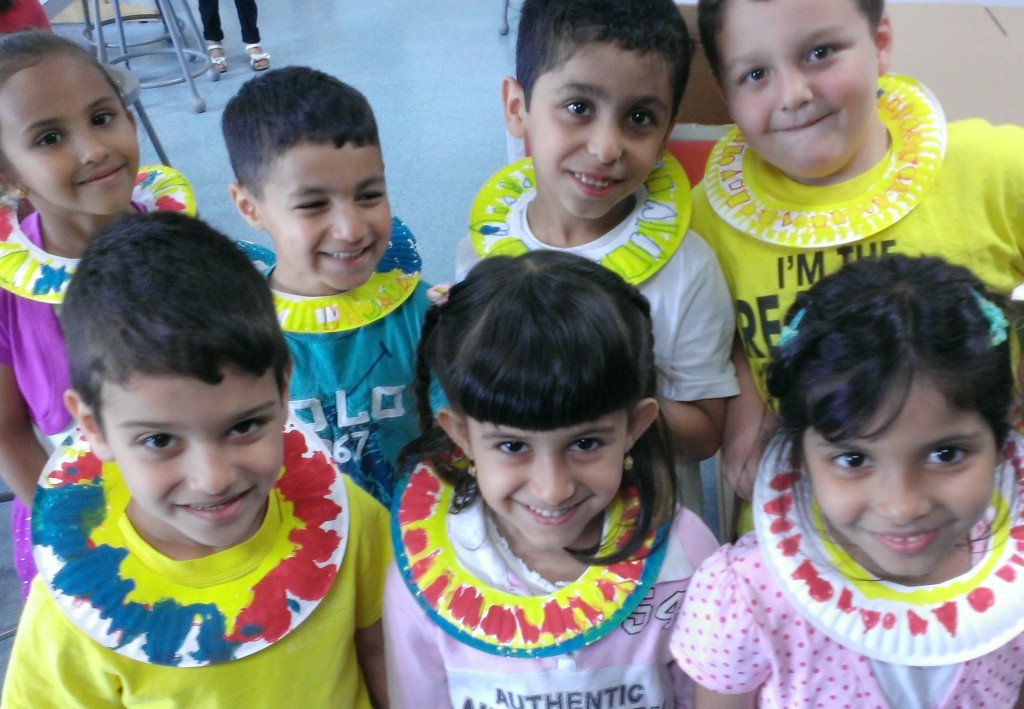

Cave Drawings
After learning about the cave paintings in Lascaux, France, students created their own simple drawings of people and animals. Before class, the tables were carefully placed on their side and large sheets of paper were taped to them. Changing the drawing surface from horizontal to vertical better mimicked the type of drawing done in real cave paintings, and presented the students with a unique collaborative experience.
